Good Omens (Season 2): As a show, Good Omens always thrived in the relationship between the angel, Aziraphale (Michael Sheen), and the demon of Hell, Crowley (David Tenant). The selling point of the miniseries, which retroactively turned the first season of the show, had been the chemistry of the two leads, which informed the story that Neil Gaiman had been trying to evoke from the Terry Pratchett-written source material. Like any Gaiman-written book, Good Omens is simultaneously whimsical as well as a recontextualization of existing myths and stories as a whole.
The first season, which was adapted from the novel, took place in 2018, where the easy-going friendship between Aziraphale and Crowley, which has deepened due to their love of earthly desires and pursuits, is in danger of evaporating because of an imminent Armageddon. Perhaps it also occurs because of a mix-up by Crowley, which leads to the Antichrist being delivered to a middle-class English family instead of an American diplomat. By the time the two unearthly friends discover their mix-up, the Antichrist has already been discovered by a hellhound, leading to the domino effect of the first season.
The second season, on the other hand, is an expansion of a planned sequel to the original book, shelved because of the unfortunate passing of co-author Terry Pratchett. According to Gaiman, ideas from the sequel book had been incorporated into the second season, and that shows, for better or worse. The structure of this season follows the structure of the first season, for the most part. However, the core cast has decreased, and thus the flashback episodes of the second season have become sources of backstory for Crowley and Aziraphale with minor connections to the main plot. A genuine, frank assessment here would be that Good Omens Season 2 effectively is a Tenant-sheen double act, and you will not find this viewer complaining.
Good Omens (Season 2) Recap:
This recap would serve better if done chronologically. Because the structuring of the season results in the connections of the flashbacks being tenuous at best, more of an exercise in worldbuilding and a Tenant-Sheen chemistry showcase, the exploration of those events would work better in isolation.
The Beginning
At the beginning of the first episode, we see Crowley and Aziraphale (a “meet cute,” methinks) meeting for the first time, with Crowley and Az effectively creating a universe. However, as the excited Crowley wonders about the evolution of humanity, Aziraphale breaks his bubble by informing him that the new universe has a life span of 6000 years, after which it would be destroyed. Crowley is disappointed; as he states, 6000 years is comparably little time for any species to evolve and thrive.
This meeting understandably takes place before Crowley’s fall from grace. Lest viewers forget, Crowley had been the demon disguised as the serpent who had tempted Eve to take a bite of the apple in the Garden of Eden. The evolution of humanity and Crowley’s curiosity leading him to take the step of tempting Eve is the sort of interesting recontextualization one can expect from Gaiman and Pratchett-written material, and this does not disappoint.
The Tale of Job
Episode 2 of this season, titled “The Clue,” is, for the majority of its runtime, a flashback tale. 5000 years ago, Crowley was given the task of killing Job’s livestock. But before he could complete his task, he was interrupted by Aziraphale. The plan, as it turned out, had been a test for Job. Crowley has carte blanche to destroy Job’s goats, his house, and his children. If, after these tragic incidents, Job’s faith in the Almighty remains unwavering, Heaven will grant him double what he has lost. So, 200 goats for the loss of 100 and seven children for the loss of 3 because God is “magnanimous” like that. It is important to remember that the existing children would still be dead. Job’s wife would have to undergo seven pregnancies for these new children to be born into this world.
Understandably, having spent time with humanity, both Crowley and Aziraphale loathe following these orders. While Aziraphale’s dilemma is more apparent, torn between his duty towards heaven and love towards humanity, Crowley’s is stealthier. When Aziraphale finally goes to meet Crowley at Job’s palace, where they are supposed to kill the children, it is revealed that Crowley had transmuted the goats into crows, who uncharacteristically bleated instead of cawing. Aziraphale finally tries to hammer home to Crowley’s conscience the need to save the children, which Crowley is reluctant to do.
It did not help that Job’s kids discovered them and were none too pleased that they were angels or demons, bragging about how Job had been God’s favorite son. However, to keep up appearances, Crowley manages to burn the mansion down and transport them to the cellar, where Azirapahale convinces the three kids to be transmuted into lizards and be hidden in an earthen pot. The youngest wanted to be transformed, with the caveat that she be colored cerulean blue. It’s adorable, even though it’s extremely strange.
As the story goes, Job’s faith remains unwavering, and thus Job finally manages to speak to God directly. Or, as the show depicts, stand below a white light descending from the heavens and ask God questions with no hope of getting answers. From a distance, Crowley and Aziraphale look on in jealousy and disillusionment as they wonder how the rules of the universe matter in the grander scheme of things when God and Satan serve to make playthings out of humans for simple validation.
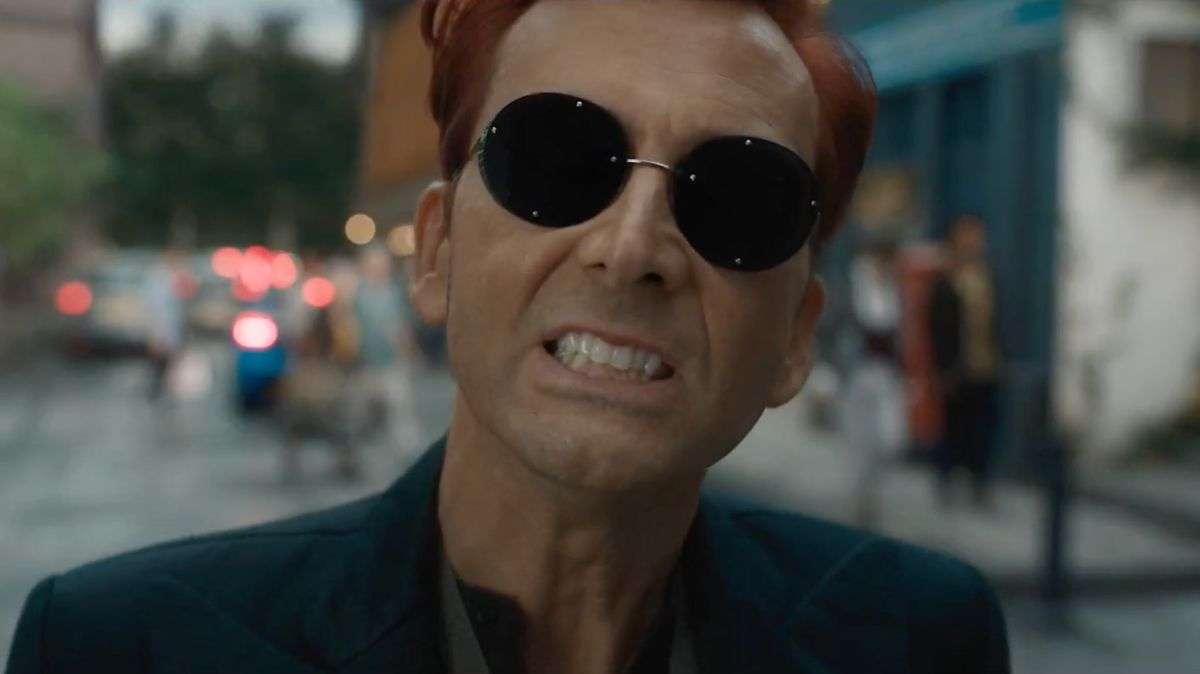
The true morality tale occurs for Aziraphale, however. When the angels finally arrive before Job and his wife and bestow upon them God’s love, they are understandably distraught because of the loss of their children. It might be an intentional choice in Season 2, as a form of the same recontextualization, but the angels are not omniscient. They are quite ignorant about conception, and thus Aziraphale and Crowley prey on the angels’ image of omnipotence and omniscience to trick them.
Crowley (through his disguise as a shoe seller in Shuite, which is a real alliterative original choice) manages to instruct Job’s wife to extract three ribs from Job, and during that process, Aziraphale manages to defuse the spell hiding the transmuted children. But the angels are not convinced of the trickery, and thus Aziraphale has to lie. A mirror to Crowley’s fall from grace, Aziraphale is distraught with guilt at having lied and begs Crowley to take him to hell, but he refuses. Instead, Crowley reminds Aziraphale that they are now both on their respective sides of this “war,” only as far as they can follow, and this independence comes at a cost: loneliness.
The Resurrectionists
In 19th-century Edinburgh, Aziraphale and Crowley chance upon a grave robber named Elspeth, who robs graves and sells them to a surgeon. Believing this to be a sin, Aziraphale chooses to stop her, while Crowley argues that circumstances have forced this poor girl to choose this line of profession. Aziraphale believes that being poor gives humanity a better chance to avoid being sinful, as Matthew 19:24 points out how difficult it is for a rich man to enter the kingdom of God. But Crowley disagrees and points out that to accept religion and live in piety would also require capital, such that they could abstain from capitalism.
A real Engelsian bargain, in a twisted way. However, Aziraphale’s tune changes when he realizes that the graverobbing is not only done by Elspeth to feed herself and her friend, Wee Morag, but the corpses are being sold off to a surgeon, who is trying to understand the mysteries of the diseased human body to save lives effectively (interesting demarcation between doctor and surgeon in this interaction). This conversation effectively guilt-trips Azirapahle, who had tried to sabotage Elspeth by melting the corpse inside the pickled barrel, effectively making it useless. To make up for that, he and Crowley agree to help Elspeth and Wee Morag dig up another grave.
However, Aziraphale’s worry about the grave robbery is shared by the townspeople as well. Thus, while beginning to rob the grave, Wee Morag steps into a trap. Crowley, Aziraphale, and Elspeth drag Morag’s dying body to a shed and try to save her, but to no avail. Instead, much to Crowley’s sarcastic glee, Elspeth chooses to sell off her dead friend’s body to the surgeon. Unbeknownst to the two friends, while selling off Morag’s body, Elspeth manages to steal a bottle of Laudanum. Choosing to kill herself to join her friend in the afterlife, she invites the two heavenly beings to join her for a last drink. Crowley, who is against self-immolation, chooses to drink laudanum.
The laudanum acts as an “intoxicant” and power disrupter, causing Crowley to embiggen and destroy the roof of the shed. Elspeth, completely stunned by the turn of events, agrees to take Aziraphale’s offered money in exchange for buying a farm, living a better life, and maybe fulfilling her dream of becoming a seamstress. As the two friends walk away with Crowleyy visibly drunk, Aziraphale remarks how Crowley has done a good thing again. However, this instance had not been a stealthy one, and Crowley was pulled back to Hell, and according to Aziraphale, that would be the last time he saw Crowley for a while.
The Nazi Zombie Flesheaters
Back in episode 3 of the first season of Good Omens, it had been lightly touched upon how Crowly had performed a minor miracle to blow up the Nazis in a church and yet save Agnes Nutter’s book of prophecy. Now we follow the immediate aftermath. While the Blitz is occurring, Crowley and Aziraphale are running a bootlegging operation for a nightclub in the middle of World War II in 1941. However, this recent jaunt from the church caused the booze to be broken to smithereens and Crowley’s client to be understandably sour. The lack of booze meant that her nightclub would invariably have less of a presence, and to compound her issues, her magician had quit. True to form, Aziraphale begs to perform the magic show. He is passionate about magic, even though his prowess in the art of prestidigitation is not the greatest, as was proven in the first season premiere. Unfortunately, Aziraphale is oblivious to his inabilities, and Crowley is not going to remove his blinders.
Back at the church and then invariably at hell, the three Nazis strike a deal to escape the treacherous pits of hell by striking a bargain with the official: they would prove to the officials at hell that Crowley, a demon, had been able to conduct his affairs on hallowed ground and had been working with an angel. In exchange, the Nazis would be spared from being ingested by a large spider and excreted out and reconstituted as a chimeric fly for all of eternity. In hindsight, the deal sounds pretty pleasant. Furfur, the demon official, would leverage this proof to secure promotion to the temptation branch of hell instead of admissions, which only proves that the version of hell being a boring office space is far too realistic, even though it is run by orcs and demons with the power to bless the dead to return to the world as zombies.
Aziraphale and Crowley go to the (only?) magic shop open during the blitz to search for a magic trick that would be impactful for Aziraphale’s debut at the West End. As the shopkeeper notices, so does Crowley. How antithetical that statement is with regards to Aziraphale’s clumsiness concerning the whole endeavor. Finally, Aziraphale chooses to execute the trick of catching a just-fired bullet from a rifle. He is confident that he would not be in danger because of his immortality, but most importantly, because he trusts Crowley. Meanwhile, the zombies manage to locate Aziraphale and Crowley and learn about their plans by feeding on the brains of the shopkeeper (a funny way to hide the blood by revealing the brain of a doll on the floor).
At the theatre, Aziraphale tries to open his magic show by trying to conjure up a minor miracle of transmutation, only to find himself failing at it. Unbeknownst to him, the zombies had contacted Furfur, who had reached the theatre and activated his “miracle blocker” card (it looks like a card with disco lights on it; the laziness is intentional, I presume). Both Crowley and Aziraphale realize that their tricks aren’t working. As Crowley takes the rifle and readies to shoot the bullet, which would be caught by Aziraphale, Furfur clicks a photograph as proof.
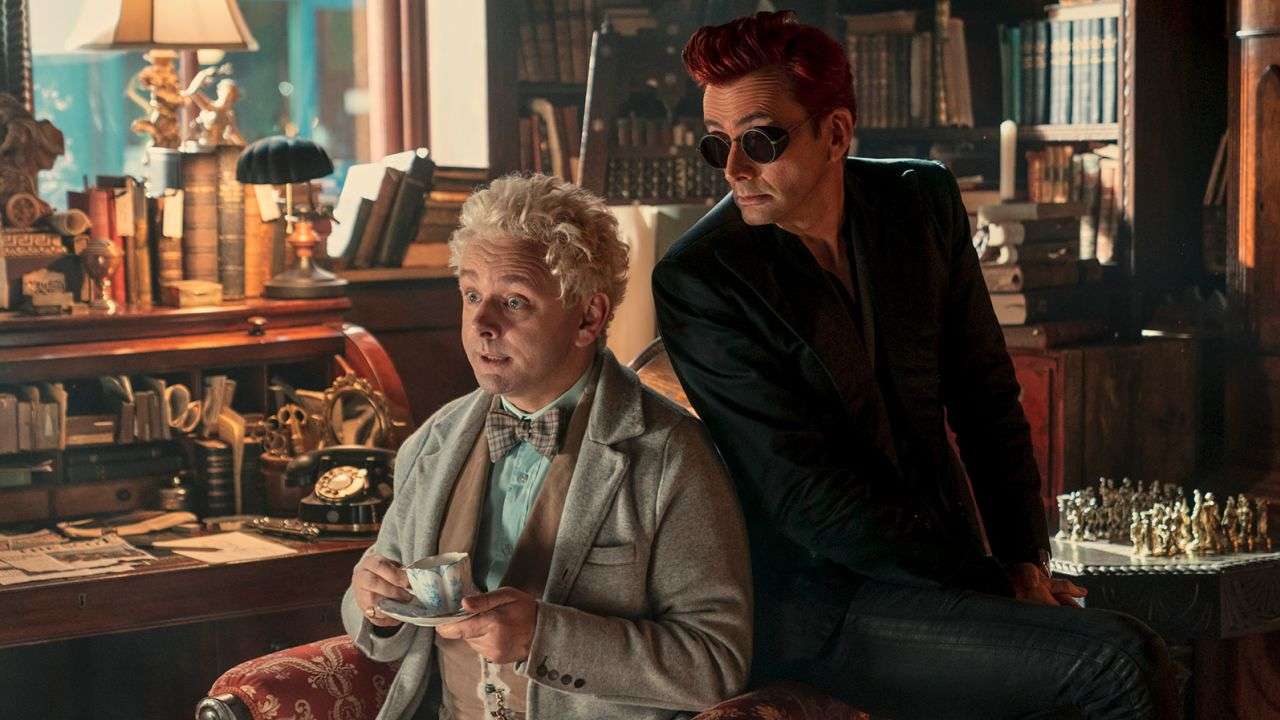
But the enjoyment of the demons and Azirapahle and Crowley’s tense “shootout” is all for naught, as Azirapahle manages to catch the bullet between his teeth at the time it matters. However, their bliss is interrupted backstage by the arrival of Furfur, who reveals to them his proof of their partnership and how he will now inform hell. Furfur also frees the Nazis from their contract by keeping them as zombies doomed to walk this Earth for all eternity. However, Aziraphale had finally managed to perfect his sleight-of-hand tricks and had replaced the photograph with a flyer of the show in Furfur’s envelope. This finally makes a fool out of Furfur when he is asked to present proof of his accusation of Crowley’s insubordination, thus dashing any hopes of a promotion for the demon.
The Search for Gabriel
As Season 2 opens, Aziraphale is still ensconced within the comforts of his bookstore. He is also the landlord of a record store, whose owner is 8 months behind on rent. However, Aziraphale could care less, as he is more concerned with procuring records for free from the shop. Meanwhile, Crowley is teaching his new replacement, Shax, about the intricacies of Earth and the complex “nuances” of humanity. And then, something literally arrives on the doorstep of Aziraphale’s bookstore. It arrives in the form of a buck-naked Archangel Gabriel walking down the street to the bookstore with a box in his hand. Confused and unsure of what to do concerning a clueless and amnesiac Gabriel, holding a seemingly empty cardboard box, Aziraphale contacts Crowley.
Crowley, meanwhile, had learned that something massive was going on in heaven and was finally seeing Gabriel put two and two together. Aziraphale wants to help him, while Crowley wants to drop that body off at Dartmoor and not bother with this problem. Seeing Aziraphale’s insistence on helping this archangel, even though last season’s events almost risked him being sucked into hell, Crowley walks out of the door as manager and expels a lot of energy, which produces a power cut and locks record store owner Maggie and coffee shop owner Nina in their romantic subplot.
Finally calm, Crowley and Aziraphale hatch a plan to hide Gabriel by performing a minor miracle. I genuinely have to say that the apology dance by Crowley is adorable. However, it backfires, unknown to them. Heaven gets wind of it immediately as a red light begins to flash, and Saraquel, one of the angels, identifies a pink flume coming out of the bookshop. They are already worried that Gabriel is missing and are now concerned that Aziraphale is involved.
Gabriel (or Jim, as he likes the moniker) has taken the role of bookseller pretty seriously, arranging books according to the first sentence of the first chapter. It is weird as well as hilarious, considering that Jim is such a blank slate that he has no clue what to do with books in the first place. However, as Aziraphale is pondering deeply about the current mystery, he is pulled back by a tune being hummed by Gabriel. The earworm burrows itself into Aziraphale’s brain, and he finally identifies the song after asking Maggie about it. It’s “Everyday” by Buddy Holly, and Maggie also informs Aziraphale about an urban legend where, in a pub in Edinburgh, all the record players start playing this tune in the jukebox, irrespective of the records being selected.
Grasping that as the “Clue” (Aziraphale is very intent on capitalizing on that), Aziraphale could barely begin to ponder before the angels showed up in his bookshop. Flabbergasted by the questions, especially after realizing that they had been discovered, Aziraphale lies and says that he had been trying to make two humans (Nina and Maggie) fall in love, and that is why he had launched the miracle. When Crowley asks why such a rigmarole of an excuse, Aziraphale sheepishly admits that it had been all he could think of. At the very least, their current miracle is working because the angels are unable to recognize Gabriel and believe his humble personality to be that of Aziraphale’s new assistant.
The excuse by Aziraphale also highlights his growing feelings towards Crowley, even though the show’s propensity for maintaining a slow burn is not broken yet. He plans to either host a ball according to Jane Austen’s prose (author, spy, and train robber, which is a backstory I genuinely want to see tackled in this) or something more insidious like forcing these two women to stand beneath an awning in the rainy season, look into each other’s eyes, and fall in love.
Crowley had tried to figure out and identify more about Nina, and through him, the viewers learned that Nina’s relationship with her partner is strained, as she is very suspicious of Nina’s activities and also has a hard time trusting her. But before they can progress further in this plot, Azirphale asks Crowley to lend him “our car,” which raises the eyebrows of both Crowley and the viewer. Crowley had been living out of the car, and he is not receptive to giving up his home to anyone, as Shax is currently renting his flat. However, he reluctantly agrees, being forced to look after Jim while Azirphale goes on a road trip to Edinburgh.
Interestingly, the angel Muriel finds the matchbox that had been present in Gabriel’s cardboard box. An over-enthusiastic simpleton of an angel with an innate curiosity about humanity, Muriel is sent to investigate Crowley and Aziraphale, and he tries to blend in as a human police officer (Inspector Constable), but in vain. Both Crowley and Aziraphale tricked her into believing that they had managed to cast a spell to make a human girl fall in love. Back to the present, Azirphale is driving to Edinburgh, and apparently, technology listens to angels and demons, which makes the car much more receptive as a result, even though Crowley (who can feel his car ambling along) is absolutely against his car being colored bright yellow, or Aziraphale having a travel snack while driving towards the Resurrectionists bar, as it turns out.
At the bar, Aziraphale, who has disguised himself as a newsie for a local newspaper, asks about the weird record player and whether he could identify any of his patrons through a sketch. The bartender initially refuses, but as he sees the sketch of Gabriel (drawn by Azirapahle), he immediately identifies him, revealing that he has not been alone, and neither does the bartender remember who he is. All he could remember about Gabriel was that he was a mason. Edinburgh also makes sense because of a statue of Gabriel in the graveyard, which captures his likeness surprisingly well. Back at the bookshop, Crowley finally enacts the plan to force the two would-be lovers within the canopy of an awning, and to that end, he conjures up a storm, but as luck turns out, the awning tears open, and the water completely splashes on Maggie, breaking any sort of spell. It does follow a pattern of Crowley screwing up with his pell work due to over-enthusiasm.
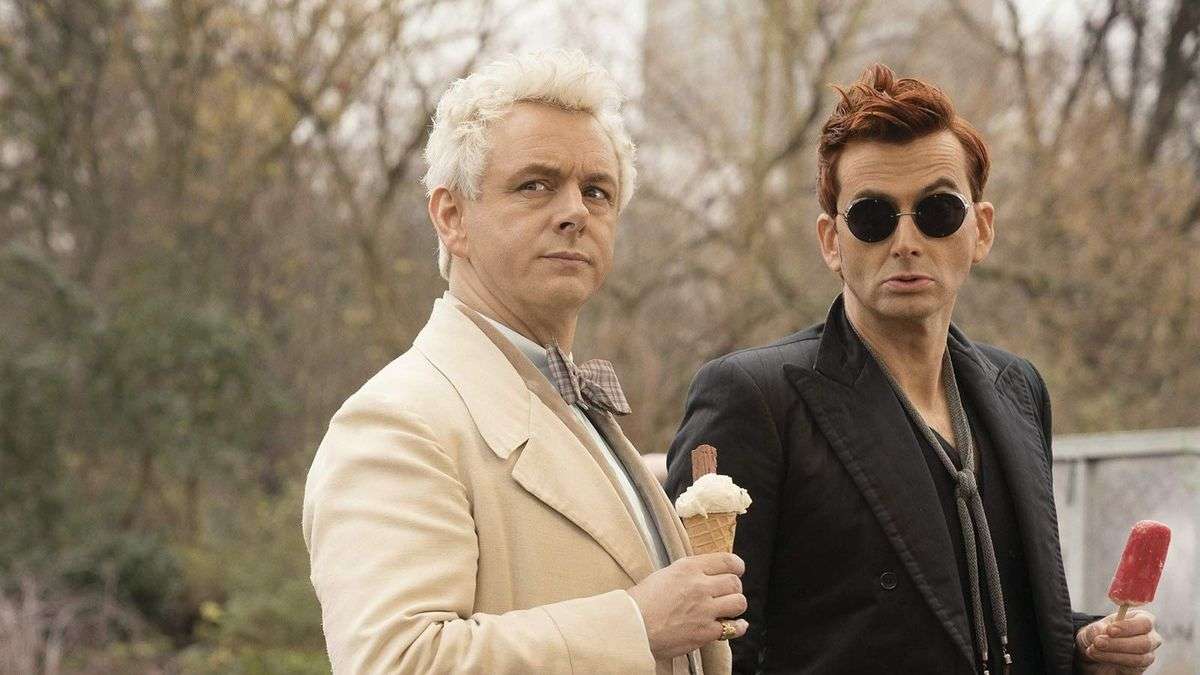
Meanwhile, Hell, too, is planning to involve itself in the Gabriel disappearance business and is intent on going after Azirapahle, presumably because of his friendship with Crowley. Interestingly, Beelzebub is also feeling a sense of disillusionment about this animosity between heaven and hell, failing to see a point in all this jousting. But she listens to Shax, who, after having hitchhiked into Crowley’s car, has managed to trick Azirapahle into admitting that he has Gabriel and is now asking permission for requisitioning demons to attack the bookshop. When Beelzebub begrudgingly agrees, Shax goes to requisition the demons from the requisitioning officer, who turns out to be the demon Furfur, who only admits to supplying Shax with 70 instead of 10,000. It presumably means the number of demons, but considering Good Omens’s proclivity for avoiding action set-pieces as much as possible, it is curious exactly what Gaiman had planned.
Aziraphale finally plans to host the annual Wickbur Street Workers’ Association, which, according to Maggie, has been pretty much a useless affair, though Nina is interested in the Christmas lights put on every year. The street itself is fascinating, feeling like a block of London stuck in an era of its own (considering Aziraphale and his bookshop, that might very well be the case). Aziraphale is also very interested in hosting this Association, which he is planning to convert into a ball a la Jane Austen style, full Regency-era romance, and he is so committed to that bit that he is eager to give away his precious books for free if only to ensure attendance from all of the members in the ball.
While Crowley visibly appears disinterested, his affections towards Aziraphale are undeniable, as he threatens Jim to spill the beans because Aziraphale is at the risk of being hunted by both Heaven and Hell due to Gabriel’s escapade. However, Crowley again refuses the demon code and stops Jim from jumping out of the window. It is fascinating how Jim describes thinking about those events as too hard because his “head isn’t built so large for so many memories,” even though at intermittent moments, Jim would burst into a portentous prose-off of the New Testament or sing a Buddy Holly track.
As the ball/meeting goes underway, to the shock of everyone, and with everyone able to dance effectively in a ballroom style, Crowley realizes that the streets outside have become foggy and that demons are moving towards the bookshop to attack. Aziraphale is, however, too enraptured by the mechanics of the ball, as well as Nina and Maggie dancing together, to care much for anything, and even asks Crowley for a dance. But before that could happen, Shax interrupts it by asking Aziraphale to hand over Gabriel; otherwise, the demons would attack. Aziraphale refuses because his bookshop is still “neutral ground,” and more importantly, the rules state that demons cannot enter anywhere uninvited.
However, Gabriel chooses to give himself up (with one fancy overcoat conjured out of thin air), but to no avail, as Crowley and Aziraphale’s miracle is still good enough and holding. The demons still plan to kill the demons, but Crowley, thinking quickly on his feet, reminds Shax of a rule whereby a battle between the forces of Heaven and Hell cannot occur within a certain radius unless the humans are evacuated. While Maggie and Nina stay in the bookshop with Aziraphale and Gabriel, Crowley leads the evacuation of the humans back to their shops. Noticing Muriel slinking around, he walks up to her and demands that she arrest him and take him to heaven. As Muriel, confused, complies with Crowley’s orders, she calls the elevator down, and Crowley walks in, intent on finally discovering the extent of damage caused in Heaven due to Gabriel’s disappearance.
While Crowley and Muriel go investigating in heaven, Nina and Maggie try to dissuade the demons from entering the bookshop, but in the process of taunting exchanges between both sides, Maggie unwittingly invites them in. As the demon horde starts rushing into the bookstore, Aziraphale removes the mat from the floor, revealing a runic circle that causes “discorporation” for any demon unfortunate enough to walk through it. But as Aziraphale remarks, even demons are not that stupid to continue like this forever. So as the trio climbs up, they discover ridiculous amounts of fire extinguishers, and Nina and Maggie start unloading the extinguishers on the demons, pushing them back into the “discorporation” circle and seeing them destroyed and sent back to hell.
Back in heaven, no angels have yet discovered Crowley’s stealth entry into heaven, and neither has Crowley managed to access the top-secret files regarding Gabriel. As Crowley remarks, Heaven does not change its passwords, so he can still access the files. It is revealed that Gabriel, the rule-following angel, had been against this new Armageddon and battle of Heaven vs. Hell and thus had refused to ratify the plan. To punish him, the angels and their boss, the Metatron, banish Gabriel, which he surprisingly looks gleeful about. Crowly and Muriel watch via the cameras, Crowly undressing and then storing his memories inside a matchbox and putting something inside a cardboard box before entering the elevator to go down to Earth, presumably leading to the events of the second season (still unsure why he needs to be in the nude; heavenly adornments are not allowed on earth, I suppose). While going downstairs, his memories were wiped.
Good Omens (Season 2) Ending Explained:
Back at the bookshop, Aziraphale finally uses his halo as an exploding charge to destroy the demons, effectively declaring war. This causes the legions of Heaven and Hell to converge in the bookshop, including Crowley. Crowley figures out the cardboard had a scrawl below stating, “I’m in the fly.” Turns out, the solitary fly that had been flying around the bookshop and which had been attracting the attention of Jim had been Beelzebub’s own special fly, which she had gifted to Gabriel on the off-chance he needed to store something large away from prying eyes.
As the fly enters through Gabriel’s retina under Beelzebub’s orders, the memories return, and the third secret romance of the season is revealed—one caused by clandestine meetings on Earth between high-ranking individuals of Heaven and Hell in maintaining the treaty, which slowly evolves into clandestine personal meetings at the Resurrectionists Bar and slowly blossoms into a romance. For a pair of immortal beings, Gabriel and Beelzebub catch on to their feelings surprisingly quickly, and even the disgust of the demons of Hell and angels of Heaven is enough to slow the pace of their whispering sweet nothings to each other. Beelzebub reminds Shax that she now has authority over Hell before taking Crowley’s advice and disappearing with Gabriel to Alpha Centauri.
As the events of the previous night subside, Nina and Maggie return to Nina’s coffee shop, where they seem to be reconciling and admitting their feelings for each other. As Nina opens her coffee shop up for business, she does not realize that the old man asking her questions about whether someone orders Death (on account of her coffee shop being named “Give me coffee or give me death”) is the Metatron himself. Ordering himself a cup of oat milk, the Metatron walks across to the bookshop, banishes the squabbling angels back to their realm, and then invites Aziraphale to walk alone with him.
Nina and Maggie, meanwhile, meet with Crowley, and they admonish him for trying to make the two of them fall in love with each other without their own volition. As it turns out, Nina had just broken up with her partner and is not ready for a relationship yet. But she would continue with it whenever she is inclined to, and she hopes Maggie would reciprocate then. As Crowley is flabbergasted and unable to construct a satisfying retort, the two women point out the obvious attraction between the angel and the demon and advise Crowley to reveal his feelings to Aziraphale.
However, because it is a TV show with an obvious cliffhanger, the show is not content with a happy ending. Before Crowley could reveal his feelings to Aziraphale, the joyous and dim-witted angel revealed that the Metatron had offered him the role of leading Heaven in the place of Gabriel, and he could also reinstate Crowley as an angel. Aziraphale’s happiness is not shared by Crowley, who, while happy to spend time with the angel, is still cross with Heaven as a whole, and given the events of the Second Season show, the reasons are quite valid. However, Aziraphale is hit with the dreaded bug—the one where he believes that he can make a difference and change Heaven. Angry, frustrated, and finally disappointed, Crowley kisses Aziraphale for presumably the first and last time and then walks away after wishing him good luck. Aziraphale meets with the Metatron, who informs him that his election as leader of the angels is vital because his knowledge of Earthly customs will come in handy when the “second coming” is finally launched.
Good Omens (Season 2) Review:
It is perhaps more obvious that this season’s central mystery doesn’t have enough meat to carry a full seasonal run, nor does it have the same glut of ancillary characters that the previous season had enjoyed. That could also be because of the show’s insistence on learning more about the central pairing, and in that regard, the show emerges as the slowest of slow burns, with the chemistry of Sheen’s Aziraphale and Tenet’s Crowley driving the whole show. The “minisodes” slowly and steadily become completely arbitrary detours, but as additions to the relationship romp of Aziraphale and Crowley, they become a delight to watch. A secondary delight is the addition of Jon Hamm as a memory-wiped Gabriel, who brings a separate and unique energy to the entire proceedings.
The secondary subplot of the romance between Nina and Maggie is unique in how whimsically it is integrated into the narrative, but the spontaneity and immediacy of the relationship don’t feel earned, instead feeling like an unnecessary distraction in a show already reveling in unnecessary distractions. However, for a story effectively building off plans from Terry Pratchett and Neil Gaiman’s developing ideas about a sequel, the voice of Terry Pratchett is very much ingrained within the DNA of the narrative, be it the comedy arising from the Regency-era’s aversion to talking about sex work, substituting it with seamstress, or the fun, clueless central apparent romance of Crowley and Aziraphale, with whom everyone identifies except the two of them.
It is also hilarious how the conception of heaven and hell is intentionally made realistic, spartan, and boring, perhaps as a unique sort of recontextualization of the myths and tropes of these foundational texts of religion. But as with Good Omens, the central theme remains intact: the value of free will and the power needed to exert it. While this season hasn’t been as plot-heavy as the first, it makes up for it in sheer charm, emotional poignancy, and pure quirky humor, which can evoke other properties but is still uniquely of a piece.




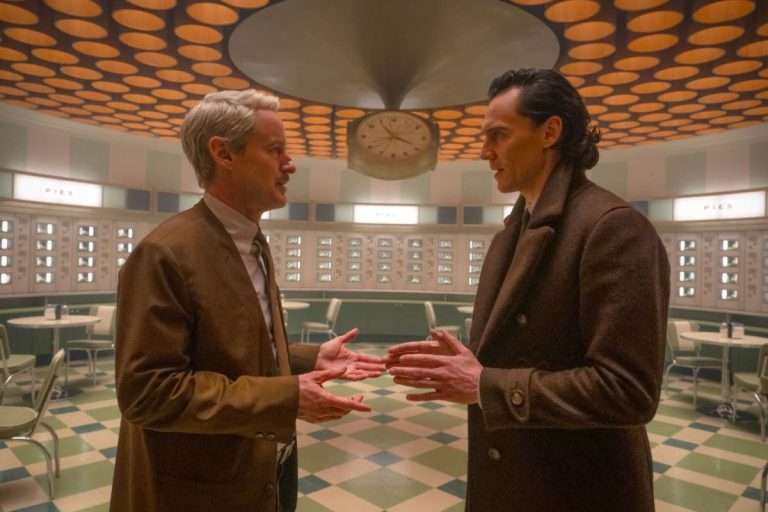
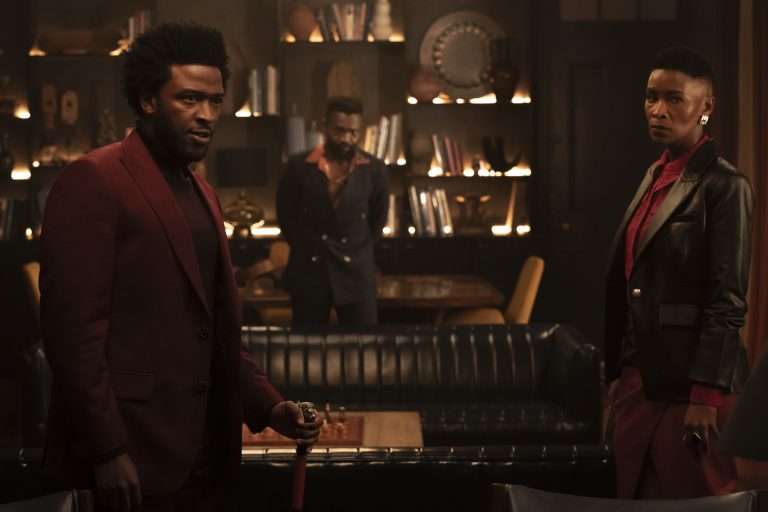
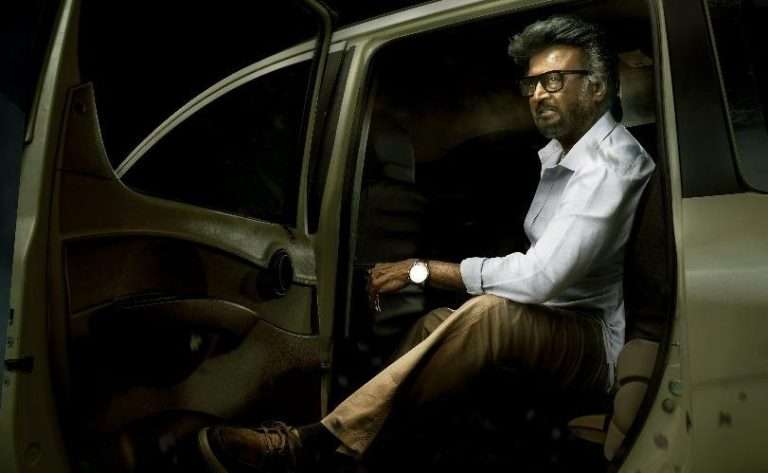
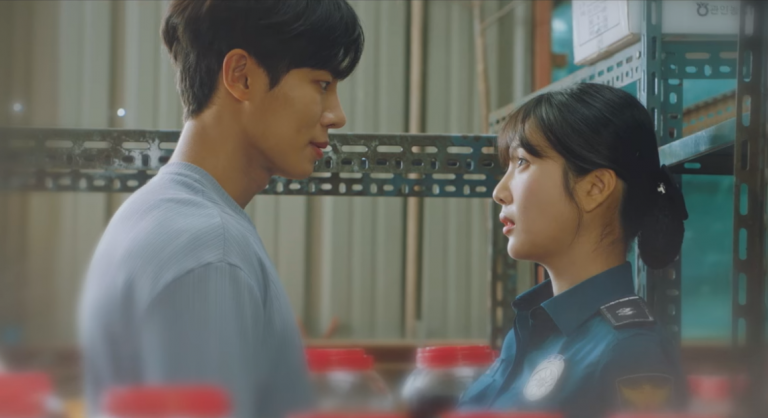

![Stranger Things [Season 3] Review: Back to the Teenage Nostalgia!](https://79468c92.delivery.rocketcdn.me/wp-content/uploads/2019/07/pic-1-768x384.jpg)